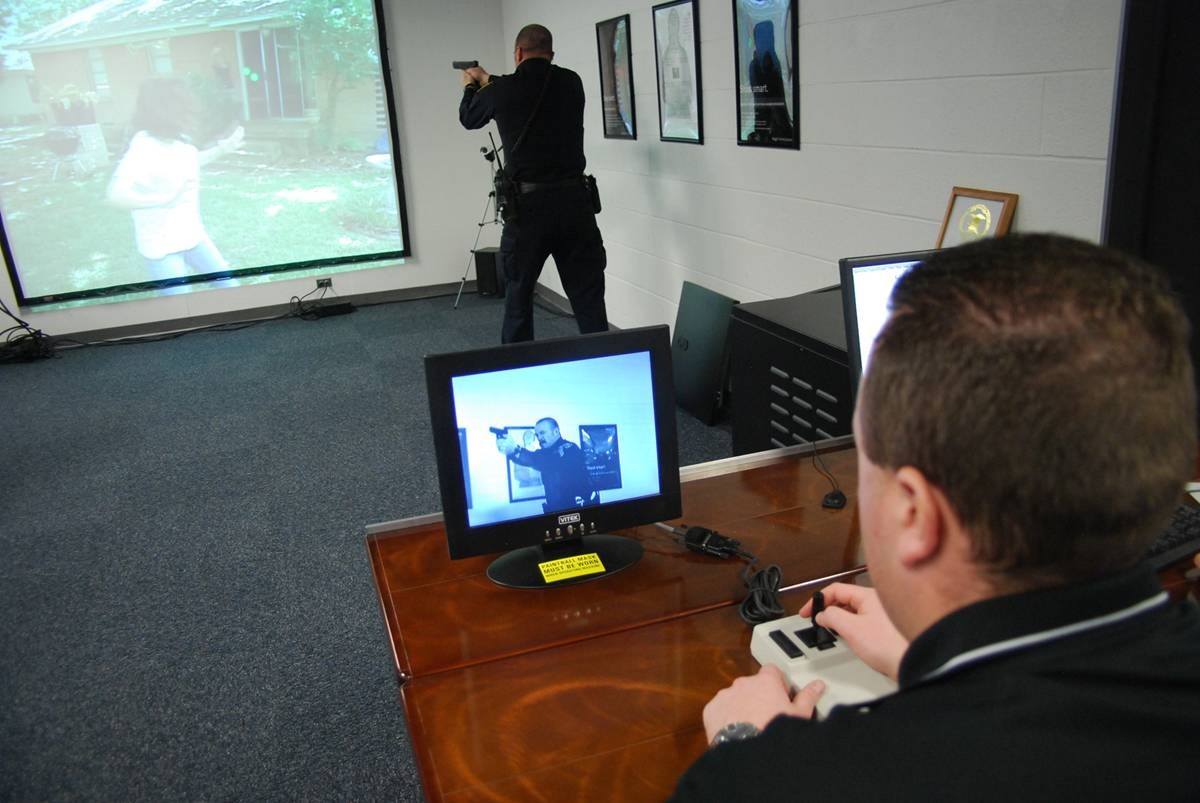Central Wyoming College: Regional Law Enforcement Officers Use Rural Justice Training Center at CWC
Law enforcement officers and first responders from throughout the region are using the training opportunities at the Rural Justice Training Center (RJTC) at Central Wyoming College (CWC).
The RJTC offers a wide assortment of programs and is able to customize the training needs for individual departments at an affordable price. "Rural law enforcement agencies face the difficult challenge of providing cost-effective and realistic training because of limited budgets," said RJTC Director Eric Heiser. With its central location in Riverton, WY, officers may travel without significantly burdening department budgets, Heiser said, adding that the RJTC also has a mobile training lab to conduct on-site instruction at any time or any place. Time off the job is minimized by reducing or eliminating travel, he explained. "We can offer individual or departmental training opportunities at a fraction of the cost."

Established in 2008, RJTC uses a sophisticated virtual firearms training system which enhances physical and mental responses of the participants as well as providing practice in the full spectrum of tools and weapons available today. The firearms training system has more than 500 real-life interactive scenarios that supply access to cost-effective and timely training options in controlled environments.
Participants get instant feedback that may ultimately save their lives in the field, as each scenario is designed to test skills in teamwork, judgment, marksmanship, and critical thinking. The scenarios also include less lethal and non lethal options such as verbal commands, baton, chemical spray, and TASER. Realistic circumstances, such as an active shooter in a school, gives excellent insight to officers and better prepares them for their jobs.
"We have established ourselves in the western region as the premier source of cost-effective, state-of-the-art law enforcement training," he said, explaining that the training is Police Officer Standards and Training (POST)-certified and scholarships and college credit options are available. If an agency desires a specific training, the RJTC has access to a variety of instructors due to extensive partnerships in law enforcement circles.
Other examples of training include SWAT analysis, school and workforce violence, drug recognition, active shooter, and criminal jurisdiction in Indian country.
The Bureau of Indian Affairs has made the RJTC its Western Region Training Center and the Wyoming school resources officers hold their annual conference and training seminars at CWC.
Current law enforcement professionals, including police, FBI, corrections, and tribal officials, as well as CWC students enrolled in Homeland Security and Criminal Justice programs, benefit from the RJTC by having access to technology-enhanced instruction, interaction with people from a variety of backgrounds, and improved community relations through strategic partnerships.
Other participants include community members, service organizations, and youth groups such as the Boy Scouts of America. Outreach to the community has helped to expand partnerships with the workforce. The Criminal Justice Advisory Committee engages in continuous dialog regarding instruction and program advocacy.










